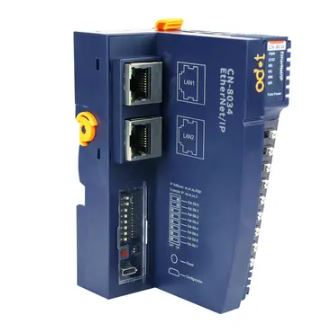
In the interconnected world of today, networking plays a pivotal role in ensuring seamless communication between devices. At the heart of this connectivity lies a crucial component – the network adapter. Let’s dive into the fundamentals of network adapters, exploring their types, highlighting the best options, and offering guidance on how to choose the right one for your needs.
What Does a Network Adapter Mean?
A network adapter, also known as a network interface card (NIC) or LAN adapter, is a hardware component that facilitates the connection between a computer or other device and a local network. Essentially, it serves as the bridge that allows data to flow between the device and the network, enabling communication with other devices within the same network and, by extension, the broader internet.
Key Points:
- Acts as an interface between the computer/device and the network.
- Essential for connecting to local networks and the internet.
- Facilitates data transmission and reception.
Types of Network Adapters
Network adapters come in various forms, catering to different connectivity needs and preferences. Understanding the types can help you choose the right one for your specific requirements.
- Ethernet Adapters:
- Wired connections.
- Commonly used in desktop computers.
- Reliable and offers high-speed connectivity.
- Wireless Adapters:
- Enable Wi-Fi connectivity.
- Ideal for laptops, tablets, and mobile devices.
- Provide flexibility and mobility.
- USB Network Adapters:
- External adapters connected via USB.
- Convenient for devices lacking built-in network ports.
- Easily upgrade older computers to modern networking standards.
- PCIe Network Cards:
- Internal cards that connect to a computer’s PCIe slot.
- Provide high-speed and stable connections.
- Suitable for desktop computers with available PCIe slots.
Key Considerations:
- Choose based on wired or wireless preference.
- Consider the form factor (internal or external) that suits your device.
- Assess speed and performance requirements.
Best Network Adapters
Navigating the market for network adapters can be overwhelming due to the plethora of options available. To simplify your decision-making process, here are some top picks across different categories:
- Best Ethernet Adapter:
- High-speed, reliable wired connectivity.
- Ideal for gaming and data-intensive tasks.
- Top Wireless Adapter:
- Supports the latest Wi-Fi standards.
- Provides stable and fast wireless connections.
- Recommended USB Network Adapter:
- Convenient for on-the-go connectivity.
- Compatible with various devices.
- Outstanding PCIe Network Card:
- Offers high-speed data transfer.
- Suitable for desktops with PCIe slots.
While specific product links were initially provided for your reference, it’s essential to explore and compare options based on individual preferences and requirements. Conduct thorough research to find the network adapter that best suits your needs and fits within your budget.
How to Choose a Network Adapter
Selecting the right network adapter involves considering several factors to ensure compatibility and optimal performance:
- Compatibility:
- Ensure the adapter is compatible with your device and operating system.
- Ensure the adapter is compatible with your device and operating system.
- Speed and Standards:
- Consider the required data transfer speed and choose an adapter that supports the relevant standards (e.g., 802.11ac for Wi-Fi).
- Consider the required data transfer speed and choose an adapter that supports the relevant standards (e.g., 802.11ac for Wi-Fi).
- Form Factor:
- Choose between internal and external adapters based on your device’s configuration.
- Choose between internal and external adapters based on your device’s configuration.
- Use Case:
- Determine if the primary use is for gaming, streaming, or general internet browsing.
- Determine if the primary use is for gaming, streaming, or general internet browsing.
- Budget:
- Set a budget and look for adapters that offer the best value within your price range.
By carefully assessing these factors, you can make an informed decision and ensure that your network adapter meets your specific needs.
In conclusion, a network adapter is a crucial component for enabling connectivity in the digital age. Understanding the types, exploring top recommendations, and following guidelines on choosing the right adapter will empower you to build a robust and efficient network infrastructure tailored to your requirements.
For a comprehensive list of network adapters suitable for your specific project, consider exploring options on platforms like Quotebeam, where you can find a diverse selection to meet your connectivity needs.